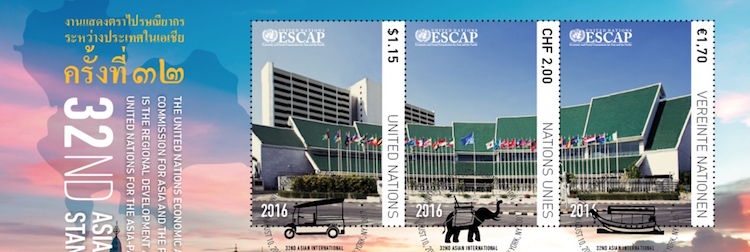NEW YORK (IDN) – An exceptional global treaty that will cut trade time and costs in the Asia-Pacific region opened for signature on October 1, 2016 at the United Nations Headquarters in New York.
Known as the Framework Agreement on Facilitation of Cross-border Paperless Trade in Asia and the Pacific, it will remain open for signature until September 30. The treaty will result in “long-term benefits for the region by promoting cross-border paperless trade to make international trade more efficient and transparent, while improving regulatory compliance”.
According to ESCAP, the United Nations Economic and Social Commission for Asia and the Pacific, research indicates that region-wide implementation of cross border paperless trade in Asia-Pacific could lead to export gains of US$257 billion annually.
Even partial implementation of cross-border paperless trade measures could lead to an export increase of US$ 36 billion annually, and the time required to export could decrease by as much as 44 per cent and reduce costs by up to 31 per cent.
The agreement will also provide a new tool for better implementation of the WTO Agreement on Trade Facilitation in Asia and the Pacific, ultimately supporting the development of cross-border e-commerce.
WTO is the World Trade Organization, based in Geneva serving as a forum for governments to negotiate trade agreements, settle trade disputes, and operate a system of trade rules. “Essentially, the WTO is a place where member governments try to sort out the trade problems they face with each other.”
The treaty will support the coherent and harmonized implementation of the growing number of bilateral and sub-regional paperless trade initiatives in the region, promoting mutual recognition of electronic data and documents and enhancing trade connectivity, ESCAP said in a media release.
Open to all 53 ESCAP Member States, this is the first regional agreement of its kind to focus on implementing advanced trade facilitation measures, specifically to achieve paperless trade across borders. It will enter into force 90 days after five countries have ratified the agreement.
“This unique regional agreement builds upon the WTO Trade Facilitation Agreement and provides an impetus to push the multilateral agenda forward in the area of e-trade and the digital economy.” said United Nations Under-Secretary General and Executive Secretary of ESCAP Dr. Shamshad Akhtar.
“New technologies and trade are essential means of implementation of sustainable development. Developing countries in Asia-Pacific are well aware of this and they fully participated in the development of the agreement from the very beginning. The result is a regional treaty text that is both ambitious but also pragmatic, so that member States at any level of development can join and benefit from it,” she added.
In May 2012, member States of ESCAP adopted a resolution on enabling paperless trade and the cross-border recognition of electronic data and documents for inclusive and sustainable intraregional trade facilitation. The text of the new treaty was adopted in May 2016. [IDN-InDepthNews – 01 October 2016]
Image: ESCAP STAMP: ESCAP’s iconic premises in Bangkok, Thailand are featured in a new special event stamp sheet celebrating nearly 70 years of the regional commission in Asia and the Pacific.
IDN is flagship agency of the International Press Syndicate.

